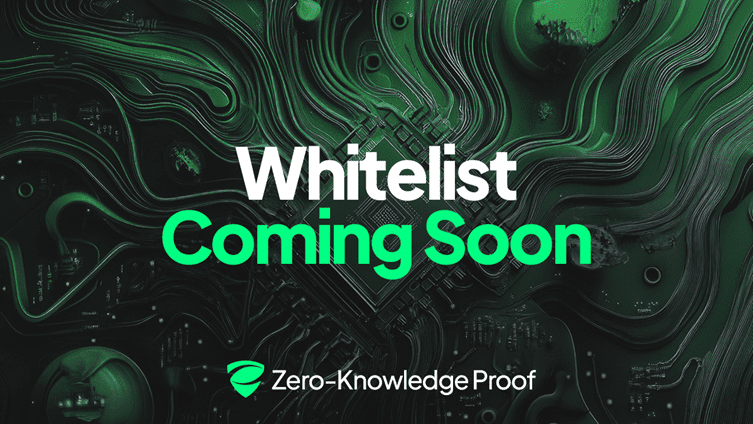The Institutional Blindspot: Zero Knowledge Proof Will Be the Asset They All Missed First

Institutions move slow but heavy. That inertia creates rare openings for early retail investors, and Zero Knowledge Proof is one of them. With the whitelist opening soon, this could be the first and only trade desk opportunity where retail gets in before institutional capital recognizes the value of privacy and scalability.
Zero Knowledge Proof isn’t about hype; it’s about positioning. It combines privacy-preserving verification, scalable computation, and quantum-resistant design, the same pillars institutions will later label as “strategic essentials.” But before committees, compliance teams, and analysts catch on, retail still has time to act. The whitelist isn’t live yet, but when it opens, it’ll mark the moment this trade desk opportunity shifts from quiet potential to headline regret.
Institutions’ Blindspot, Why They Overlook Emerging Protocols
Institutions favor what’s safe, not what’s next. Bureaucratic layers slow their decision-making, making them late to innovations like Zero Knowledge Proof. By the time they notice, the early valuations are gone.
Zero Knowledge Proof is built on strong cryptographic logic but operates at a speed that institutions can’t match. Retail, however, can. The whitelist opening soon offers a front-row entry before institutions begin their usual data-gathering phase.
Here’s why this window exists:
- Institutional onboarding cycles can take months.
- Risk frameworks block early-stage adoption.
- Retail users can commit capital without waiting for board approvals.
DeFi protocols powered by Zero Knowledge Proof, from private DEXs to stealth lending tools, will gain traction before institutional validation. Quantum readiness and privacy compliance make it even harder to ignore, but institutional awareness will lag. That gap is the edge. Acting now means claiming the trade desk opportunity before that edge closes.
DeFi Protocols and Compliance Tools Built on Zero Knowledge Proof
DeFi built on Zero Knowledge Proof isn’t just about privacy; it’s about architecture. Private AMMs, confidential yield farms, and invisible order books will soon become standard. Early users gain access to the infrastructure layer before institutions can license or co-opt it.
What sets Zero Knowledge Proof apart is how it fuses compliance with freedom. Enterprises can build private audit systems, zero-leak KYC, and selective disclosure tools. That’s exactly what banks and regulators will demand down the line, but by then, the cost of entry will be steep.
Trade desk opportunity means being positioned before the demand curve hits. Once institutions move in, governance and liquidity become less community-driven. Whitelist access gives early users the ability to:
- Stake in early liquidity pools
- Vote on protocol direction
- Capture the earliest staking rewards
When regulators finally approve ZK-integrated systems, Zero Knowledge Proof will already be the underlying infrastructure. Retail users who entered now will hold the power positions institutions later scramble for.
Quantum Resistance and Long-Term Risk Mitigation
Quantum computing is the elephant in every boardroom, but few are building for it today. Zero Knowledge Proof is one of the few projects designed with quantum resistance in mind. That means while current cryptography may crack under quantum attack, Zero Knowledge Proof will remain secure.
Institutions will eventually demand quantum-proof assets, but their frameworks aren’t ready. Retail participants who recognize this early secure more than just an investment, they secure longevity.
The trade desk opportunity here is about understanding time horizons. Institutions invest based on policy cycles; retail can invest based on foresight. Zero Knowledge Proof isn’t a short-term trade, it’s an architectural bet on the future of blockchain security. When the institutional narrative shifts to “quantum-safe infrastructure,” this will already be the standard they missed first.
By aligning privacy, scalability, and future-proof security, Zero Knowledge Proof gives early investors leverage over both volatility and obsolescence. That’s how asymmetry in opportunity is created, and exploited.
Why the Whitelist Opening Soon Is Your Entry Window
The whitelist is not live yet, but once it opens, it will be the defining window for retail. Institutions will eventually flood in, but by then, prices will reflect institutional liquidity, not early conviction.
Why this moment matters:
- First access: Early allocations before large funds enter.
- Network ownership: Stake in governance before it centralizes.
- Frontier advantage: Join while infrastructure is still being shaped.
The trade desk opportunity isn’t about hype, it’s about positioning before data models and compliance departments catch on. Once the institutions arrive, retail’s asymmetric edge disappears.
Retail has one structural advantage: speed. The permissionless design of Zero Knowledge Proof ensures that anyone, anywhere, can join before the institutional floodgates open. That’s not speculation, it’s timing. Timing is what makes the difference between being early and being erased.
Summing Up
The trade desk opportunity in Zero Knowledge Proof represents something rare: the ability for retail to lead institutions for once. Privacy and scalability will soon be mandatory, not optional. Institutions will spend millions to buy access to what retail can still enter freely.
Zero Knowledge Proof aligns with three trends institutions can’t ignore forever: DeFi integration, quantum readiness, and privacy-compliant finance. The whitelist opening soon is the first checkpoint. Those who act will define the next phase of Web3 infrastructure.
When the institutional analysts finally wake up, it’ll be too late to get in cheap. This is their blindspot, not yours. Don’t wait for the herd. The first movers will write the next chapter of blockchain security, and Zero Knowledge Proof crypto is where it begins.

Source: The Institutional Blindspot: Zero Knowledge Proof Will Be the Asset They All Missed First



